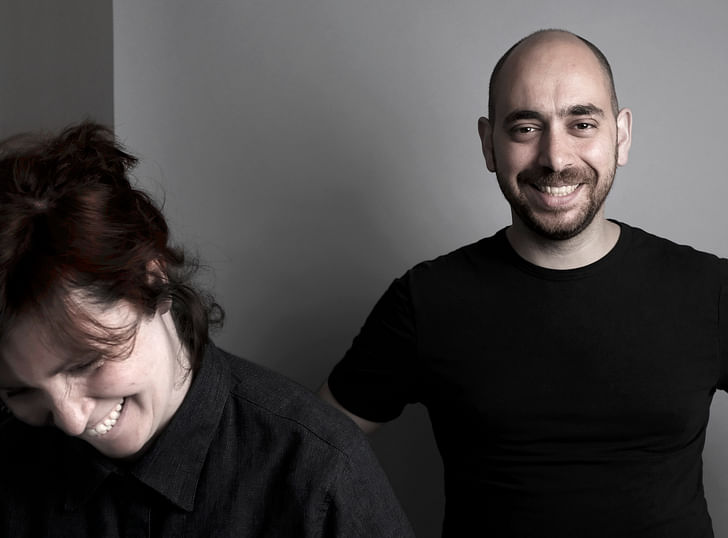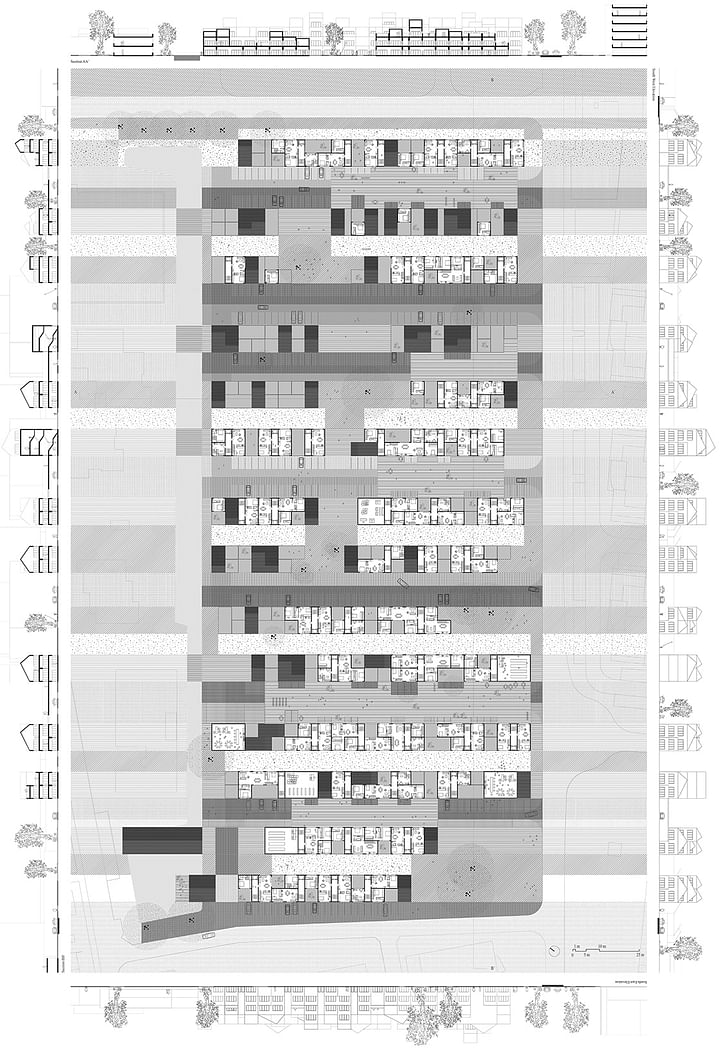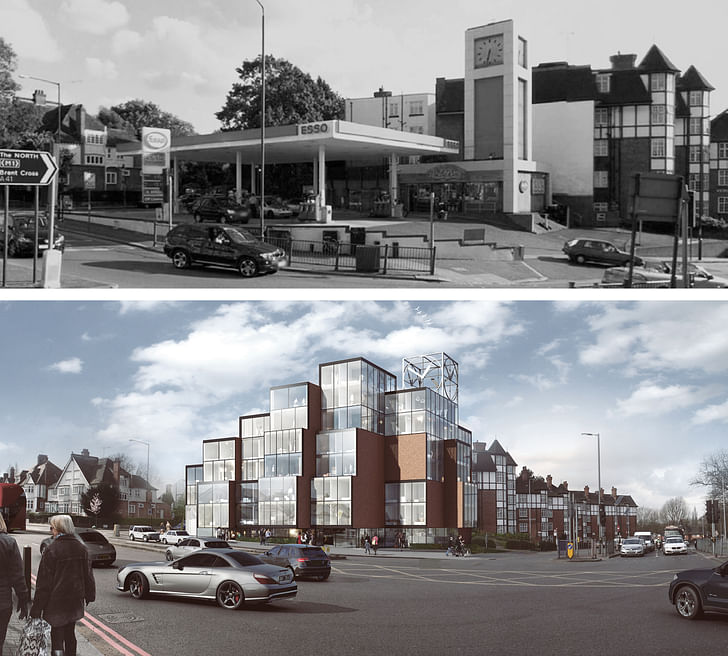

This week we take a Small Studio Snapshot of NEUBAU, a young practice and think tank operating between London and Cambridge, founded by Brigitta Lenz and Alexander Giarlis. Both with extensive previous experience working for big name practices, the duo talks about how they draw on this background to create ambitious and thought-provoking work focused on sustainability.
How many people are in your practice?
Currently 4-5 — on top of that, we benefit from a large network of consultants.
Why were you originally motivated to start your own practice?
We both worked in high-profile practices, in senior positions, for a long time (FOA, OMA) — and felt it was time to make that transition.
We have two very different approaches to design, and are always finding creative ways in which to acknowledge this whilst making our differences work for us, resulting in rather unexpected outcomes.
What made you want to work together?
We've known each other for many years, studied together in London and then went our separate ways, with Alex studying in Cambridge and me at the AA in London. After years of discussions on all things relating to art and architecture, and some failed attempts at working together, we approached the idea of a shared office years with a certain sense of ambivalence. But it was really our time at OMA, working in Hong Kong and Rotterdam, which manifested both our sense of intensity and direction, as well as the subjects and materiality we would like to occupy ourselves with. We have two very different approaches to design, and are always finding creative ways in which to acknowledge this whilst making our differences work for us, resulting in rather unexpected outcomes.

What hurdles have you come across?
Mostly the usual logistical and financial hurdles relating to setting up a practice (IT, system coordination) — thankfully we were in a position to fund our enabling phase whilst setting up for a live project.
Is scaling up a goal or would you like to maintain the size of your practice?
Only time will tell. We are always keen to collaborate or establish affiliations with independent consultants, and we don't believe in a hierarchical principal/employee structure - so we are keen for the company to grow independently, feeding from diverse sources and developing its own momentum.

How do you manage the work between London and Cambridge? What advantages/disadvantages have you found from this situation?
Commuting between London and Cambridge is not uncommon, and while it does take slightly more effort, the journey is comparable to other cross-London journeys — the only caveat being travel expenses, which are generally offset by lower living costs up here. We are not currently in a position where we need to be in London every day, and we are also in parallel working on some local projects.
Overall we appreciate the compression of life here, Cambridge is surprisingly international, innovative and diverse, and we accept certain limitations on scale and novelty, in favour of a healthier work/life balance.
What are the benefits of having your own practice? And staying small?
We consider our current size an advantage but we are trained and used to organizing large teams, so we would happily adapt to a larger format if required. As an emerging practice, it is in our interest to keep overheads low to remain competitive. We admire our architectural heroes such as Steven Holl, who allegedly slept in his office for many years, or Farshid Moussavi, who worked from a small container near their first project in Yokohama — we are not nearly as radical, but living in Cambridge does take off some of the London pressures.

Ellen Hancock studied Fine Art and History of Art at The University of Leeds and Sculpture at Mimar Sinan Fine Arts University in Istanbul.Now based in London she has a keen interest in travel, literature, interactive art and social architecture.
No Comments
Block this user
Are you sure you want to block this user and hide all related comments throughout the site?
Archinect
This is your first comment on Archinect. Your comment will be visible once approved.